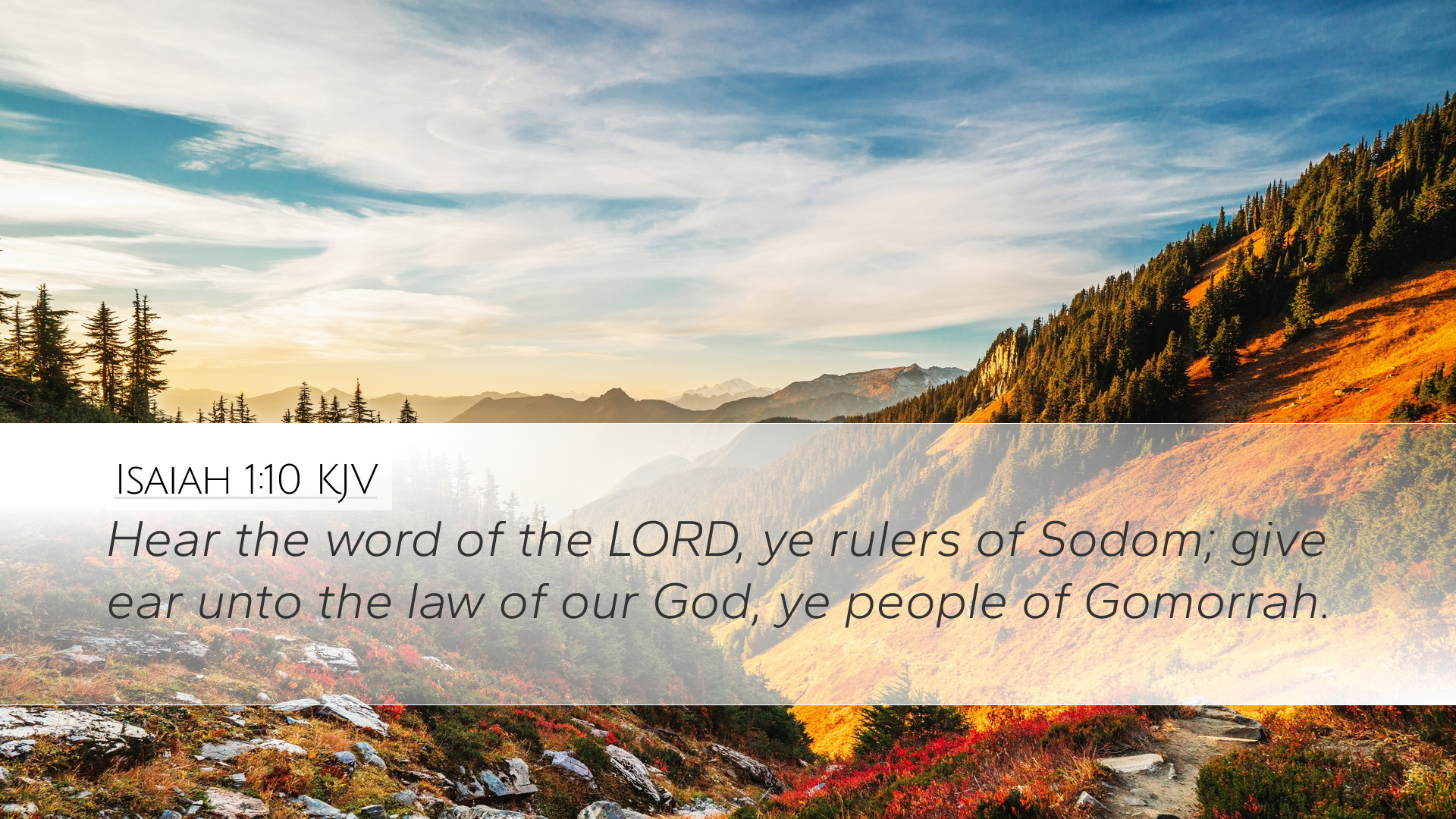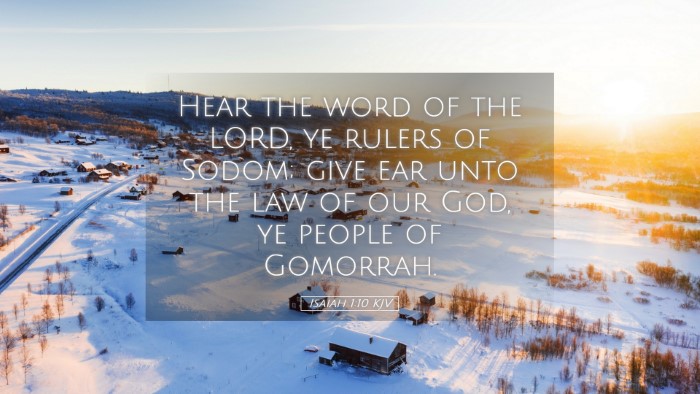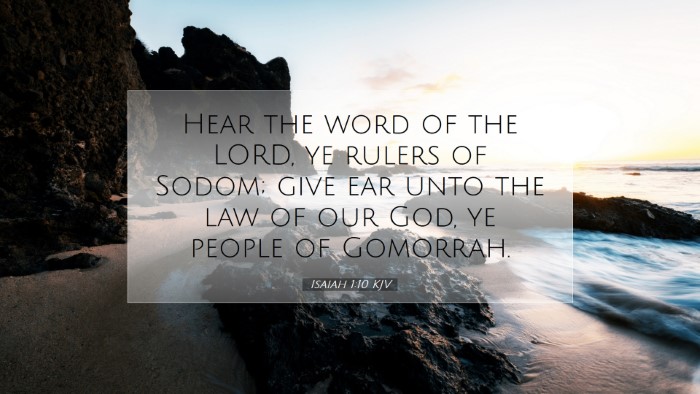Commentary on Isaiah 1:10
Isaiah 1:10 states: "Hear the word of the LORD, you rulers of Sodom; give ear to the law of our God, you people of Gomorrah." This verse serves as a powerful introduction to the themes of judgment and the call for righteousness that permeate the entire book of Isaiah. Below is a synthesized commentary drawn from various public domain sources.
Contextual Overview
Isaiah, the prophet, addresses the kingdom of Judah during a time of moral decay and social injustice. The reference to "Sodom" and "Gomorrah" invokes the destruction of these cities as a warning to the people of Judah. This comparison emphasizes the gravity of their sins and the inevitable consequences of turning away from God's law.
Exegesis of Key Terms
- "Hear": This imperative calls for active listening and responsive action. It represents a divine summons to attention and acknowledgment of God’s authority.
- "Word of the LORD": This phrase signifies the prophetic message, highlighting the source of authority as divine rather than human.
- "Rulers of Sodom": Referring to the leaders of Judah, this term signifies the corruption and perversion rampant among them, drawing a stark parallel to the infamous cities.
- "Law of our God": This phrase underscores the establishment of moral order based on divine law, which the people have forsaken.
Thematic Insights
Several key themes emerge from Isaiah 1:10:
- Judgment: The prophet uses the historical examples of Sodom and Gomorrah to illustrate the impending judgment that awaits Judah should they continue in their sinful ways.
- Call to Repentance: The imperative to "hear" signifies a call to repentance and a return to obedience to God’s commandments.
- Leadership Accountability: The verse highlights the responsibility of leaders and rulers in guiding their people towards a righteous path.
- The Nature of True Worship: Implicitly, the commentary alludes to the superficial nature of worship observed in Judah, reminiscent of the empty rituals that characterized Sodom and Gomorrah.
The Insights of Matthew Henry
Matthew Henry emphasizes that Isaiah's appeal is directed to both the leaders and the people, indicating that the moral state of a society is deeply rooted in its leaders' fidelity to God's commands. He notes that though Judah might be far from the physical location of Sodom and Gomorrah, their spiritual condition mirrors the sins that led to those cities' destruction. Henry captures the sense of divine indignation and the urgency of the prophet’s message.
Albert Barnes' Reflection
Albert Barnes elaborates on the significance of the names "Sodom" and "Gomorrah." He indicates that by calling the leaders of Judah by these names, Isaiah is not only condemning their actions but also rebuking their self-righteousness. Barnes points out that the corruption in society often arises from moral failings of those in authority. Therefore, the call to heed God’s word is one of self-examination and a serious reminder of the high standards expected from those especially called to lead.
Insights from Adam Clarke
Adam Clarke emphasizes the prophetic urgency of Isaiah's message. He assesses the broader historical context in which Isaiah prophesies, illustrating the social injustices prevalent in Judah—such as oppression, exploitation of the poor, and idolatry. Clarke notes that this specific indictment is aimed at making the people aware of their dire situation and inciting them towards a radical transformation of their hearts and actions. He reinforces the idea that God’s law is the blueprint for a just and peaceful society.
Contemporary Application
For pastors, theologians, and students of the Bible today, Isaiah 1:10 challenges the contemporary church to examine its own practices. The call to heed God's word demands a serious reflection on how leaders conduct themselves and the impact of their moral choices on the broader community. The historical example of Sodom and Gomorrah serves as a poignant reminder of the consequences of neglecting God's justice and righteousness.
Conclusion
Isaiah 1:10 encapsulates a profound theological truth regarding the nature of leadership, accountability, and the importance of living in accordance with God’s law. The combined insights from Matthew Henry, Albert Barnes, and Adam Clarke provide a rich tapestry for understanding the message of Isaiah as timeless and relevant. It serves as both a warning and an invitation—calling believers to reflect on their spiritual and moral state while embracing the transformative power of God’s word.


